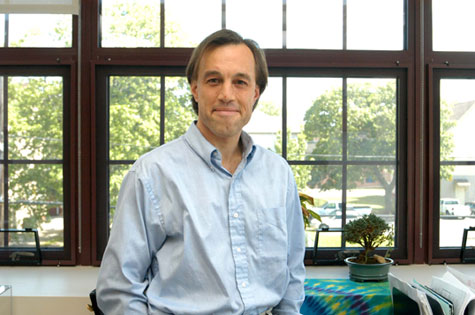
SEIZE THE MOMENT Hyson says "there's a growing community that really wants to do the right thing." |
With Rhode Island's industrial sector in its death throes and the state in desperate need of a new economic engine, political leaders are talking with new urgency about wind and solar and all things green.
That means a higher profile for environmental advocates like the Providence-based Apeiron Institute for Sustainable Living, which is hosting its marquee event — the annual Rhode Island Sustainable Living Festival & Clean Energy Expo — this weekend (the Phoenix is a media sponsor of the event).
This year's iteration combines a particularly high-powered musical lineup — Dar Williams, Patty Larkin, and the Low Anthem are among the performers — with food, a yoga tent, and 80 workshops on green building, renewable energy, and community gardens, among other topics.
Tickets for the festival, which runs June 6 and 7 at the Nickerson Community Center's Camp Hamilton in Coventry, are $20 per day ($30 for both days if purchased in advance). Day-of tickets are $25 per day or $40 for the weekend. Children under age 12 can attend for free. More information is available at livingfest.org.
We caught up with Apeiron co-founder and executive director Bradley Grove Hyson this week for a little Q&A, edited and condensed for space:
AS THE SMALLEST STATE IN THE UNION, DO YOU THINK RHODE ISLAND IS UNIQUELY POSITIONED TO BE A MODEL FOR SUSTAINABLE GROWTH? No question about it. The exciting thing about the size of Rhode Island is the accessibility of everyone from the governor to our legislature to state agencies. In Rhode Island, I feel like we have really good communication. I'm imagining in some of the larger states it might be more difficult to try to not only reach people, but also to kind of get them coordinated, to get them to work together. So I think we've been very fortunate in that respect. You know a million people is easier to reach than 5 million people.
AND WITH A COMPACT LAND MASS, IS IT EASIER TO MAKE PROGRESS ON ISSUES LIKE PUBLIC TRANSIT? You know, every issue is unique. Some of the challenges we might have with transit are that we don't have large enough numbers to warrant some of the infrastructural projects that you would see in like a Boston or a New York. You know, they say that we just don't have the numbers to make it work for a subway system, or something like that. However, transit specifically is an issue that [is getting] a lot of attention. I really think there's support in the state. [There are political leaders who] really see this unique opportunity in the next three years to make some strides on things like street cars, light rail. I think we've reached some critical mass. The challenge of the work on sustainability is it's not, oftentimes, quick. It's long, slow —
thinking where we want to be 40, 50 years down the road and taking those small steps to get us there.
GIVEN RHODE ISLAND'S ADVANTAGES, WHAT HAS HAMPERED PROGRESS HERE? I think there's just a general inertia. I think people are just resistant to change and new ideas. But I think that there's a growing community that really wants to do the right thing. They want to live a high-quality lifestyle, have healthy communities for their families, minimize toxics, not create undue burdens for future generations.
THERE'S A LOT OF TALK ABOUT A NEW GREEN ECONOMY AND GREEN TECHNOLOGY. DO YOU THINK RHODE ISLAND CAN COMPETE WITH A PLACE LIKE BOSTON? I don't know the answer to that. I think RISD and Brown are both real assets. I think you start young, too. In one of the Scandinavian countries, even though they didn't have great [sunlight], they decided they were going to put solar panels on every school because they realized that the next generation of kids are the major decision-makers and they wanted them to really be comfortable in thinking about these things. Innovation and great ideas can come from any place.